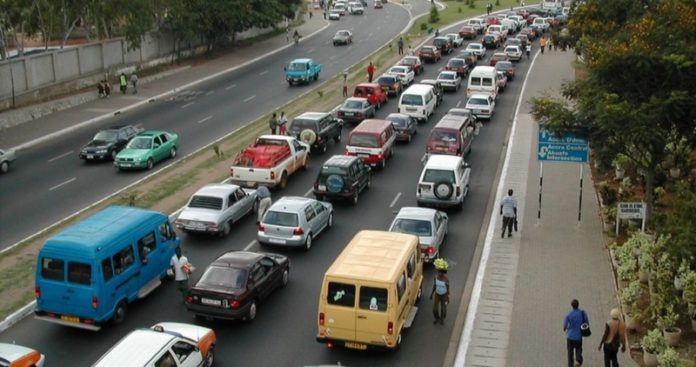By Wisdom JONNY-NUEKPE
The International Perspective for Policy and Governance (IPPG), a research and policy think-tank, has appealed for government to ensure transparency and accountability in implementing the country’s Emissions Levy Act.
IPPG said it is imperative that government prioritises transparent revenue allocation and establishes proper verification mechanisms for reported emissions that fully enable the Act to deliver on its environmental and economic objectives.
It believes the country’s Emissions Levy Act, 2023 (Act 1112), when fully implemented, will build public trust and ensure the levy’s long-term success in reducing greenhouse gases (GHG) and vehicular emissions in the country.
The call from IPPG is detailed in a new research report titled ‘From Policy to Practice: An In-depth Review of Ghana’s Emissions Levy Act’.
The Emissions Levy Act was passed in February this year as part of Ghana’s Environmental Fiscal Reform (EFR) under the Medium-Term Revenue Strategy (MTRS 2024-2027). The law imposes a levy on CO2 emissions from specific sectors, including construction, manufacturing, mining, energy and combustion emissions from gasoline and diesel vehicles.
The levy is designed to support the country’s commitment in achieving GHG emission reductions and avoiding at least 2,900 premature deaths annually through improved air quality.
The research report, authored by Seth HYPERLINK “https://www.linkedin.com/in/seth-owusu-mante-jnr-3aa7b61a3/”Owusu-Mante and Reginald Nii Odoi, notes that for the Emissions Levy Act to be successful it is essential government ensures transparent implementation.
It also calls for publishing detailed inventories of companies subject to the levy, their emissions levels and regular reports on revenues generated and their specific allocations.
Without this level of transparency, IPPG warns that public mistrust and a lack of accountability may undermine the levy’s effectiveness.
In addition, the report emphasises the need for clear guidelines and dedicated bodies to measure and verify emissions accurately, given that the law provides for self-reporting by companies subject to paying the levy. Without these, IPPG argues, implementing the levy may face significant challenges which could hinder the Act’s impact.
The report notes that self-reporting raises concerns about the accuracy of emissions data, with companies potentially underreporting to reduce tax liability or overreporting due to a lack of standardised methods – thereby jeopardising fair taxation and environmental goals.
The report also addresses financial barriers to adopting cleaner alternatives in Ghana’s transport sector. While the levy on internal combustion engine (ICE) vehicles aims to reduce pollution from diesel and gasoline vehicles and encourage clean transportation, the high cost of electric vehicles (EVs) and limited financing options in Ghana present significant hurdles.
For instance, Ghanaians can purchase used cars – but even used EVs are still significantly more expensive than used diesel or gasoline cars, which limits their accessibility in Ghana. IPPG recommends that government must implement supportive policies such as subsidies for EV purchases, establishing credit and loan facilities through banks and other financial institutions, and investments in EV infrastructure to overcome these barriers and encourage cleaner transport options.
The report further highlights absence of a dispute resolution mechanism within the Act and advocates amending the legislation to include provisions for arbitration that streamline the resolution of grievances, which can enhance the Act’s effectiveness.
The full research report offers valuable insights into how Ghana can leverage the Emissions Levy Act to achieve its environmental and public health goals while promoting sustainable economic development.
Successful implementation will reduce Ghana’s GHG emissions, improve air quality and foster economic resilience to drive the nation toward a sustainable, low-carbon future.










